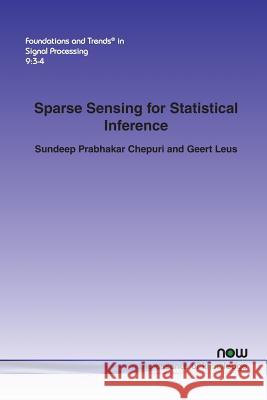Sparse Sensing for Statistical Inference » książka
Sparse Sensing for Statistical Inference
ISBN-13: 9781680832365 / Angielski / Miękka / 2016 / 172 str.
Sensors are becoming increasingly omnipresent throughout society. These sensors generate a billion gigabytes of data every day. With the availability of immense computing power at central locations, the local storage and transmission of the data to a central location becomes the bottleneck in the real-time processing of the mass of data. Recently compressed sensing has emerged as a technique to alleviate these problems, but much of the data is blindly discarded without being examined to achieve acceptable throughput rates. Sparse Sensing for Statistical Inference introduces and reviews a new technique called Sparse Sensing that reduces the amount of data that must be collected to start with, proving an efficient and cost-effective method for data collection. This monograph provides the reader with a comprehensive overview of this technique and a framework that can be used by researchers and engineers in implementing the technique in practical sensing systems.
Sensors are becoming increasingly omnipresent throughout society. These sensors generate a billion gigabytes of data every day. With the availability of immense computing power at central locations, the local storage and transmission of the data to a central location becomes the bottleneck in the real-time processing of the mass of data. Recently compressed sensing has emerged as a technique to alleviate these problems, but much of the data is blindly discarded without being examined to achieve acceptable throughput rates.Sparse Sensing for Statistical Inference introduces and reviews a new technique called Sparse Sensing that reduces the amount of data that must be collected to start with, proving an efficient and cost-effective method for data collection. This monograph provides the reader with a comprehensive overview of this technique and a framework that can be used by researchers and engineers in implementing the technique in practical sensing systems.











